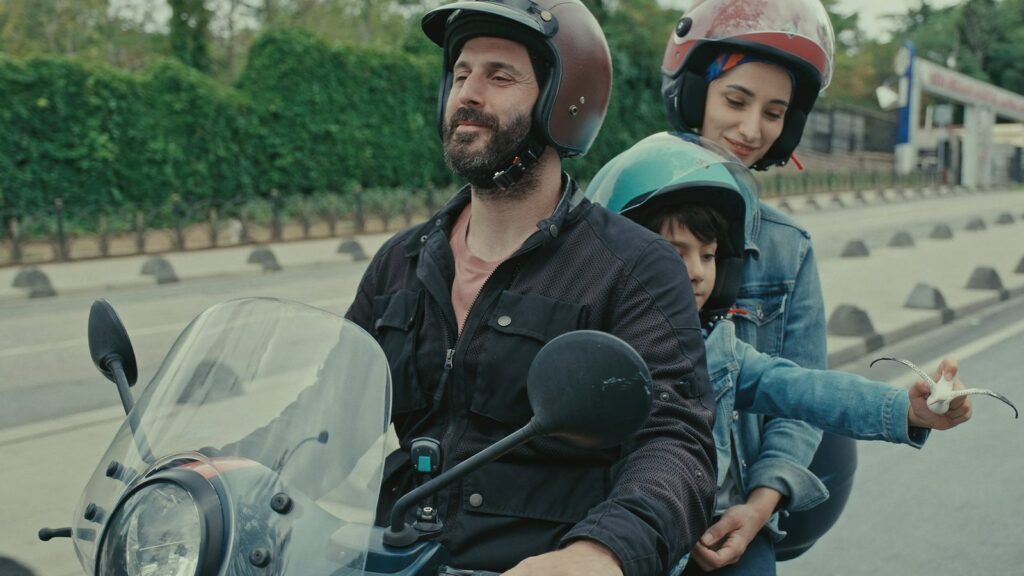Movie Title: Rosinante
Year: 2023
Country: Turkey
Language: In Turkish with English subtitles
Directors: Baran Gündüzalp
Social realism has been a significant genre in cinema since the emergence of Italian Neo-Realism in the late 1940s. Through small, intimate stories about the day-to-day lives and struggles of families worldwide, filmmakers have revealed the beauty and fragility of humanity. These stories—centered on minor struggles and small victories—allowed audiences across the globe to connect with characters and themes, no matter where the films were set. In a way, this genre fulfilled Marshall McLuhan's idea of the "global village."
Rosinante is a film that fits firmly within this tradition. It meets all the criteria of a socially realistic film. The story follows Salih and Aysa, a white-collar couple living in modern-day Istanbul. Their six-year-old son, Emre, has yet to speak, so they take him to see a psychologist. Aysa, who trained as an architect, now works from home as an insurance salesperson to care for Emre. Meanwhile, Salih is actively searching for work, often being told he's “Overqualified" or simply ignored.
In addition to their professional struggles, they are forced to search for a new place to live, but rising rents and limited housing make this difficult. Like many families around the world, Salih and Aysa are simply trying to make ends meet. Salih’s beloved motorcycle, nicknamed "Rosinante," becomes their lifeline. Salih eventually takes on work as a motorcycle taxi driver, and Rosinante becomes central to the family's routine and resilience. The three of them navigate the sprawling city on their bike.
Without Salih's approval, Aysa begins taking night shifts with Rosinante, pushing their resources even further. Through the family's journeys, we experience the vibrant, modern, and colorful city of Istanbul. As they deal with moving houses, job interviews, and the pressure of Aysa losing her job, tensions rise. The emotional burden of the child’s problems and the financial collapse take their toll on the family, but Salih and Aysa remain good-hearted and reasonable people and together with Rosinante, manage to keep going.
Then Rosinante gets stolen. This marks the collapse of the family’s fragile stability. The loss of the motorcycle leaves them powerless, and the future looks bleak. At the film’s climactic moment, the couple discovers a motorcycle left with the keys still in the ignition—a clear nod to De Sica’s Bicycle Thieves, a landmark of Neo-Realism. Will they take it? Will they succumb to temptation?
The film concludes on a hopeful note. Though not much is explained, things do improve, mirroring the resilience many people experience worldwide.
Rosinante is a solid film. The cinematography is fluid, with strong camera work that captures the beauty of Istanbul. The acting is believable, and the characters are relatable.
However, the film lacks depth. While well-acted, the characters aren't particularly compelling, and their emotional motivations remain underdeveloped. The absence of dramatic tension isn’t utilized to give the audience space to reflect on the characters or events. None of the main characters experience significant growth, and the supporting characters don’t influence them in meaningful ways. Although the film ends on a happy note, it feels unclear how the resolution was achieved. That said, Rosinante is still an uplifting and engaging film—I just wished it offered more.




